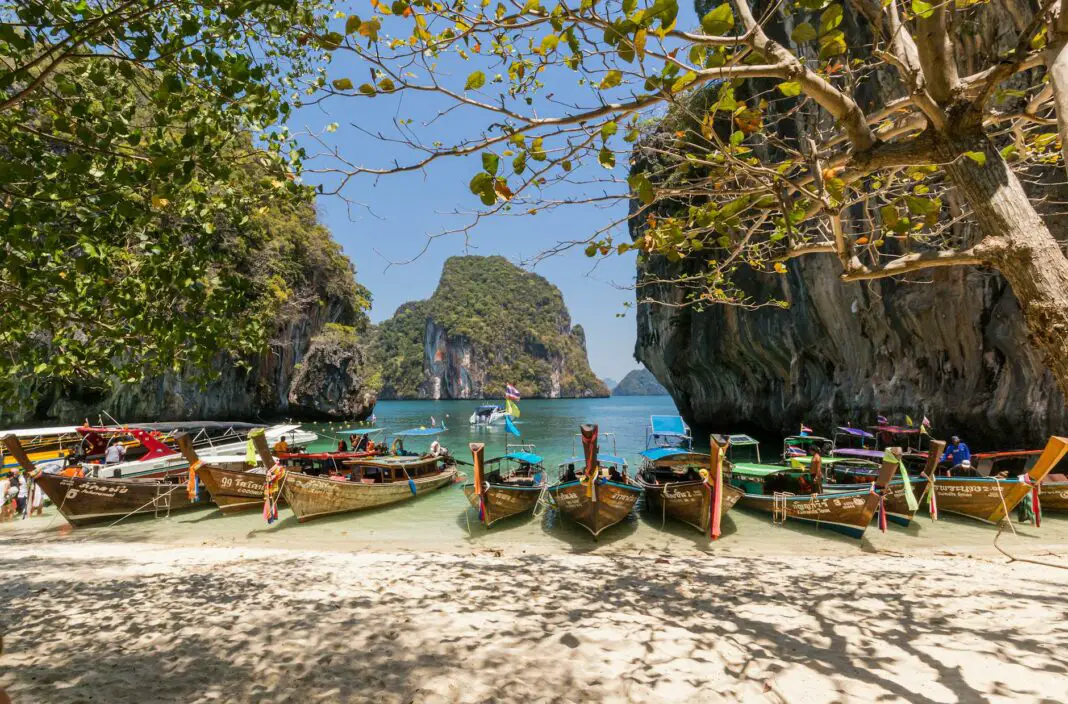Thailand is often celebrated for its stunning beaches, vibrant cities, and rich culture, but with the burgeoning interest in eco-tourism, a new facet of this Southeast Asian gem is beginning to shine brightly. Travelers are now eager to explore the hidden eco-tourism paradises that the country has to offer. Is this eco-tourism experience in Thailand truly worth all the hype? In this blog post, we delve into the enchanting landscapes, sustainable practices, and unique experiences that await eco-conscious travelers. Get ready to uncover why a trip to Thailand’s eco-tourism spots promises not just adventure but also a deeper connection to nature.
From lush forests to pristine beaches, Thailand’s eco-tourism offerings are as diverse as the country itself. Whether you’re trekking through mountains, discovering serene waterfalls, or exploring local communities committed to sustainable living, this blog will guide you through an unforgettable journey. We will explore the hidden treasures of Thailand, providing insights into why they’re becoming increasingly popular among eco-minded travelers. Join us as we unfold the magic of Thailand’s eco-tourism and its breathtaking destinations, ensuring your next adventure is both responsible and exhilarating.
Table of Contents
- Eco-tourism Spots in Thailand
- Benefits of Eco-tourism
- Real-Life Experiences
- Traveling Sustainably in Thailand
- Final Thoughts
- FAQs
Eco-tourism Spots in Thailand
When venturing into Thailand’s eco-tourism scene, certain destinations stand out due to their exceptional commitment to sustainability and breathtaking natural beauty. One cannot overlook the allure of Chiang Mai, often considered the cultural capital of the north. This area features lush jungles, stunning waterfalls, and opportunities to engage with local hill tribes, all while promoting sustainable practices that respect the environment. Here, visitors can partake in ethical elephant tourism, allowing these majestic creatures to roam in their natural habitat while supporting their well-being and conservation.
Another gem is Koh Yao Noi, which perfectly encapsulates tranquil island life away from the typical tourist crowd. It not only provides pristine beaches and crystal-clear waters but also hosts diverse eco-friendly activities like kayaking through mangroves and exploring local handicrafts. Additionally, the community-driven initiatives on this island foster a responsible tourism culture that benefits both visitors and locals. Such experiences ensure your visit contributes positively to preserving the delicate ecosystems and cultures of Thailand.
Benefits of Eco-tourism
Engaging in eco-tourism comes with a trove of benefits that appeal to modern travelers looking to make a difference. Firstly, eco-tourism promotes environmental awareness and education. When tourists immerse themselves in natural settings and learn about local ecosystems, they become better stewards of the environment, which leads to a reduction in their ecological footprints. Secondly, supporting eco-tourism projects helps maintain and even restore habitats while encouraging conservation and responsible wildlife management practices.
Moreover, local economies greatly benefit from eco-tourism. When visitors choose eco-friendly accommodations, participate in guided tours led by local experts, or shop for artisan crafts made by indigenous communities, they directly contribute to the livelihoods of those who rely on sustainable practices for their income. This, in turn, fosters a deeper respect and understanding among tourists for local cultures and traditions, creating impactful connections and memorable experiences. Such interactions not only enrich the traveler’s experience but also lead to a more sustainable future for all involved.
Real-Life Experiences
Nothing compares to experiencing eco-tourism first-hand. Imagine waking up in a bamboo hut in the middle of a rice field in Pai, surrounded by lush mountains and the melodies of nature. As dawn breaks, you could join a local farmer in harvest, gaining insights into organic farming methods while enjoying the authenticity of rural life. Such immersive experiences not only bring the natural world closer but also reshape your understanding of what travel can represent.
Another captivating example is the various volunteer programs available throughout the country, which allow travelers to contribute to important conservation work. Whether it’s helping marine biologists protect coral reefs in Krabi or participating in wildlife rehabilitation efforts near Khao Sok National Park, these programs let individuals leave a positive mark on the environment while creating lasting memories. Engaging actively with these projects enhances the traveler’s sense of purpose and connection to Thailand’s unique ecosystems. Each moment spent in these serene settings enriches the soul and fosters empathy toward nature.
Traveling Sustainably in Thailand
While exploring Thailand’s eco-tourism offerings, travelers should adopt practices that align with sustainability to leave no trace behind. Opting for eco-friendly accommodations is a crucial step, as many hotels and lodges emphasize green building practices, utilize renewable energy, and emphasize waste-reduction methods. In addition, consider using public transportation or renting bicycles, which not only minimizes carbon emissions but also allows for a more immersive experience of the local culture. Every journey through the vibrant streets or tranquil countryside can yield discovering hidden gems, while reducing reliance on fossil fuels.
Moreover, when dining, choose local eateries that source ingredients fresh from their farms. This supports local producers while offering a taste of authentic Thai cuisine. Participating in local traditions and respecting cultural norms, such as supporting local artisans or being mindful of wildlife habitats, can significantly enhance the eco-tourism experience. By making conscious choices, you not only enjoy the beauty of Thailand but also contribute to its preservation, ensuring that future generations can experience the same wonders.
Unlocking the Hidden Treasures of Thailand’s Eco-Tourism
Thailand undeniably showcases a wealth of eco-tourism opportunities, promising travelers unique experiences that simultaneously nurture the mind and spirit. By choosing to explore these hidden eco-paradises, visitors experience the breathtaking beauty of the natural world while actively participating in its preservation. Each trip emphasizes the importance of responsible tourism, promoting sustainable practices that empower local communities while celebrating Thailand’s rich natural and cultural heritage.
As you set off on your journey, consider the profound impact you can have by engaging with eco-friendly initiatives. Let your experiences resonate with the enchanting tales of Thailand’s unspoiled lands. Embrace sustainability and responsibility as you explore, realizing that the true essence of travel lies not just in the destinations we visit, but in the meaningful connections we forge along the way. Make your next adventure more than just a getaway; let it become a journey of purpose and discovery.
FAQs
- What are the top eco-tourism destinations in Thailand? Eco-tourism hotspots include Chiang Mai, Koh Yao Noi, Khao Sok National Park, and Pai, all offering unique experiences that promote sustainability.
- How can travelers support local communities in Thailand? Choosing locally-owned accommodations, dining in local eateries, and participating in community-based tourism initiatives allow travelers to positively impact local economies.
- Is eco-tourism more expensive than regular tourism? While some eco-friendly options may have higher upfront costs, they often provide authentic experiences with long-term benefits to communities and the environment.
- What are some eco-friendly practices travelers should adopt in Thailand? Travelers should minimize waste, respect wildlife, use public transportation, and support sustainable businesses to contribute to responsible tourism efforts.
- How does eco-tourism benefit the environment? Eco-tourism promotes conservation efforts, raises awareness about environmental issues, and supports sustainable practices that protect fragile ecosystems.
Image Credit: Pexels





